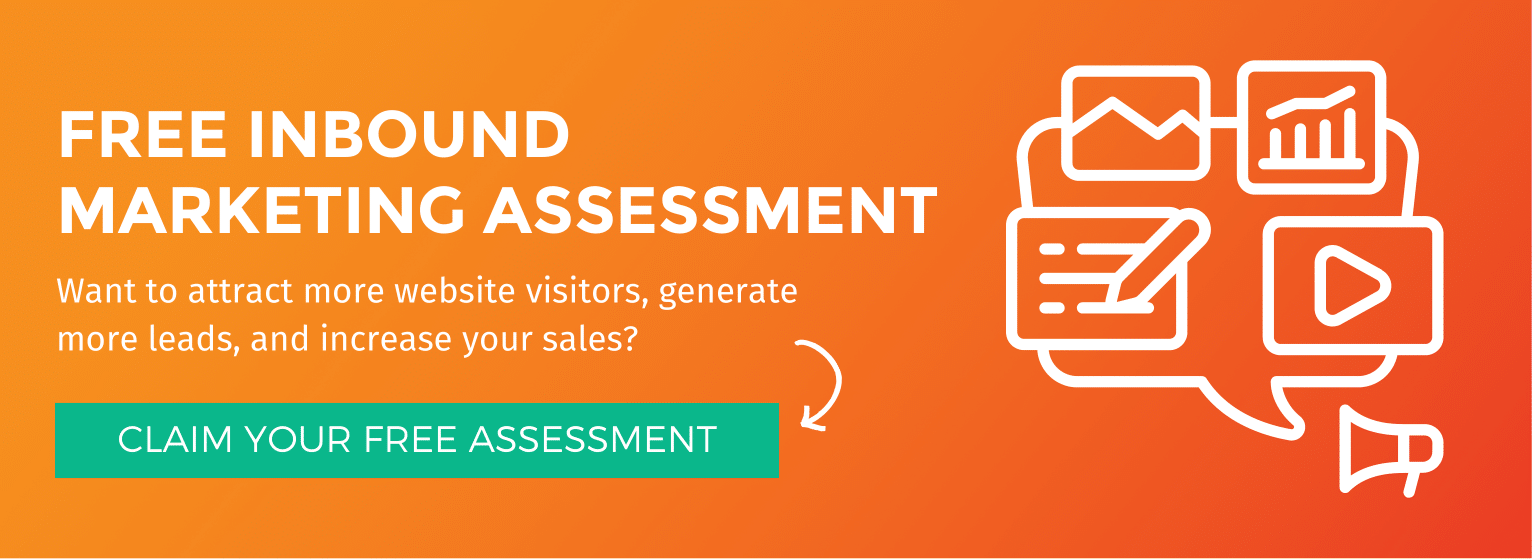4 AI applications transforming the face of inbound marketing

Improvements in AI (artificial Intelligence) technology have triggered a revolution in how software is used in digital marketing. Many of the leading marketing software vendors are now incorporating AI into their already powerful platforms, helping users make better use of customer data to increase personalisation and raise efficiency.
In this article, we will look at four of the marketing platforms currently leading the field in functional AI.
1. HubSpot
HubSpot is one of the world’s leading service, sales, and CRM software platforms for small businesses, and was also one of the first to fully integrate AI into its automated workflows. HubSpot started integrating AI in 2016, six years before the launch of Chat GPT, using AI to improve its lead scoring features, chat bots, and content strategy capabilities. Unlike some of the other platforms reviewed here, HubSpot does not have a named AI tool (e.g Einstein or Sensei). Instead, AI is utilised at every level of the platform.
AI features
- Predictive lead scoring
- Dynamic email personalisation
- Customer service and lead generation chat bots
- Content planning – machine learning suggests content topics and clusters to improve organic traffic
- Social media content suggestions
- Sales forecasting
- Customer feedback analysis
2. Salesforce Einstein
Einstein is an AI powered tool integrated into the Salesforce platform, which uses natural language processing (generative AI) machine learning-based analytics, and complex automation features to help users personalise their marketing strategies. Salesforce was another early adopter of AI – Einstein was first integrated into the platform in September 2016.
AI features
- Einstein Discovery – AI data analytics to help identify patterns and insights in customer data
- Einstein Prediction Builder – a business intelligence tool used to predict conversions, customer churn, and other business outcomes
- Einstein Best Action – give suggestions for the next action for each contact derived from AI insights
- Einstein (Chat)Bots
- Einstein Lead Scoring
- Einstein Vision & Language – Salesforce’s new NLP and image recognition tool
3. Adobe Sensei
Sensei is the AI and machine learning framework incorporated into the Adobe Creative Suite – also in 2016. While not specifically a marketing platform, the Adobe suite of applications is used by many businesses to create and develop content marketing collateral, including the Creative Cloud, Document Cloud, and Experience Cloud (which includes the veteran marketing platform Marketo – see below).
AI features
- Content intelligence – assists with content categorisation, search, tagging, and digital asset management
- Image recognition – identifies scenes, objects, and faces in images to facilitate easier organisation and editing
- Natural language processing – primarily for sentiment analysis and content recommendations
- Automated design and editing – AI driven video and image editing tools
- Marketing insights – AI recommendations for optimising marketing content for specific by segments.
4. Marketo Engage (Adobe)
Marketo was one of the pioneers of marketing automation software, first created in 2006 and acquired by Adobe in 2018. Even before the acquisition, Marketo was an early innovator in AI technology, working AI lead scoring and predictive analytics into the platform from 2015/16. The current version of the platform, Marketo Engage, uses Adobe Sensei to enhance its ability to manage and optimise marketing content, as well as predictive analysis.
AI features
- Churn analysis and prediction
- Conversational AI chat bots
- AI-driven campaign optimisation, segmentation, and targeting
- Customer behavioural analysis
It’s nice, but is it AI?
Make no mistake, AI is set to be as big as the Internet, transforming many aspects of our society and economy in ways that are difficult to predict. However, as a new and emerging technology, AI still isn’t widely understood by the general public. There is a lot of confusion about what AI is and what it isn’t, and a lot of applications claiming to use AI when what they are actually referring to is automation or some other software technology.
As a rule of thumb, if an application doesn’t have a deep learning mechanism, such as a neural network that allows the application to make quasi-independent, or intelligent decisions, then it probably isn’t AI. Chat GPT and GPT 4 are true AIs. The software used in the applications we’ve looked at in this article is, as far as we can tell, also based on genuine AI. Not all marketing automation platforms currently use AI (e.g. Pardot, Zoho, and Mailchimp), but this could change in the future.
AI and automation
Smart motorways, route planning software, variable speed drives (VSD), and automated warehouse management systems and production lines are not (necessarily) AI-based. Systems like this use automated software to instigate a decision chain based on data input from sensors (often using the Internet of things). The system cannot make decisions outside of its predetermined logic chain, which is like a flowchart of potential actions, and isn’t ‘intelligent’ as such. Automation is extraordinarily useful, but it shouldn’t be confused with AI. The technologies and potential applications are quite different.
HubSpot: The clear choice for SMEs looking to invest in AI
Of the platforms explored here, HubSpot stands head and shoulders above the others as the best option for SMEs looking to invest in AI marketing technology. HubSpot is an all in one platform that seamlessly integrates sales, marketing, and service tools within an easy-to-use interface, with transparent, scalable pricing that makes it accessible for companies of all sizes. HubSpot’s AI and automation capabilities draw clear connections between data analytics, advanced CRM management, and strategic marketing to help users optimise their business development strategies, drive high engagement, and increase conversions.
To find out more about HubSpot and how it can support your business, please contact JDR today by clicking here.
Image Source: Canva



